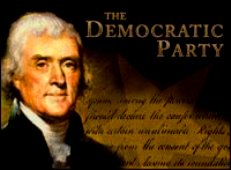How the Chimney-sweeper's cry
Every black'ning Church appalls;
And the hapless Soldier's sigh
Runs in blood down Palace walls.
The narrator informs the reader of the plight of the "chimney sweep" and the "hapless soldier" who represent all social classifications—all together—who are oppressed. In this, Blake reveals that the Church is fraudulent in ignoring the plight of the weak and powerless. The Church that Blake depicts in this poem is arguably no Church at all—it refuses to help those "blackened" by oppression. Arguably, a "black'ning church" would get dirty helping those in needs, but since in this is not the case, there is apparently corruption within the Church. Furthermore, Blake highlights the meaninglessness of military service to a country that does not protect its own citizens. The "sigh" of men drafted into the military is evident as it "runs in blood down palace walls." They have no choice but to fight for their crooked country.
Ultimately, Blake presents the idea—based on his own experience—that corrupt institutions of power are devastating blows to the very heart of society. The fourth and final stanza ends the day, as it becomes midnight. A harlot gives birth to a baby whom she will never be able to love because the child was conceived as she was working for profit to survive in such a wretched society. Therefore, the misery of her life is passed down, as it were, to her child. And if nothing is done, it seems that her child will continue this pattern.
The curse of the harlot goes further. She perpetuates sickness and disease. From her, men contract diseases and pass it on to their wives and to her, other diseases are given. Her "sigh" unlike that of the soldier has a real, tangible effect. And this is what narrator means when he writes in the very last line that she "blights with plagues the Marriage hearse." Similar to the metaphor, "mind-forg’d manacles"—referring to psychological imprisonment—the metaphor "Marriage hearse" is very rich symbolism. The two terms are staunchly opposed, one which reflects a life-giving union and the other, death. This reveals a state of family-breakdown—the reproductive foundation of society is broken. The end is fitting, as it illustrates profoundly for the reader a continuous vicious cycle. Thus, the final stanza disentangles the underlying meaning of the poem. The harlot symbolizes how current transgressions transmit into the future. It reiterates the ageless saying, "the sins of the father reigns down upon his children." The tears of the newborn infant embodies the troubling reality that each coming generation will have to work to heal the mistakes of their ancestors—mistakes that are deep, deep wounds.
The essence of London is widespread societal economic hardship that ultimately reflects an internal battle—psychological imprisonment, moral deterioration, and a sense of hopelessness. This poem seems to lack in romantic vision, but the vision is there: a vision is needed. This hope, this realization is what Blake wants to make clear, so that people may be lifted from this despair. The anger in the tone, the bitterness, is like a war trumpet or a battle cry. It is a mission to save men and women who have loss sight of their dignity in a well-crafted system of profit-reaping exploitation.
Personal Insights: William Blake is by far one of my favorite romantic writers and this specific work I personally enjoy nearly as much as The Marriage of Heaven and Hell (in which my favorite Christian apologist, C.S. Lewis replied to with The Great Divorce—though Blake’s work is not nor is it meant to be any work of theology). Along side Blake's other famous works Songs of Innocence and Songs of Experience, London is definitely one of my favorites. It richly describes a society with terrible errors. And in my interpretation of this poem, I could not help but identify the situation, at least in part, with America.
Certainly, I am an American patriot. I hardly could imagine myself living in any other country in the world. As a patriot, I'd be one of the first to admit that my country isn't perfect, but there is much I love about her and I have hope in her and her promise to humanity based on the wonderful principles she was founded upon. I believe in America. I have confidence that she will soar beyond the crises that she faces right now, those of my time, and journey to prosperity.
The image of London that Blake attempts to say is not the real London for me translates into the ideal America that we dream of versus the terrible realities that are easily ignored in our everyday lives. The immense moral and social dilemmas we face require much of us, but I think it would be universally agreed upon that we do not respond properly and swiftly to this vocation. In America today, I see a religious emphasis on individualism. Faith is private and personal. We set our own standards, charity sounds nice, but we don't do it. We pass homeless people on the street, lock our doors, roll up our windows, and occassionally someone asks: why doesn't the government do something about this? Since when the government is the sole organization for charity? We all have our part to play.
The privatization of faith is a common among Protestant Christians with their emphasis on a personal relationship with the Lord Jesus Christ. From a Catholic perspective, they missed the memo from the Lord when he said "what you do the least of my brethren, you do to me." Therefore, we are called to transform the world, to be true disciples who produce abundant fruit for as St. Paul said, faith without works are empty. But this sort of individualism has found its way into the Catholic Church. There are a number of dissenting Catholics who defend their positions with the clause of "primacy of conscience," citing the catechism out of context and mistaking conscience for simply a personal preference or desire. I think another form of this individualism exists in the "LifeTeen Mass." What these people seek to accomplish (reaching out to Christian youth) is wonderful and beautiful, but I disagree on how to achieve it. From my perspective, I believe they are watering-down the liturgy and making it wordly. The songs you hear on the radio, you hear at Mass. Even in the attempt to make actual liturgical hymns into "LifeTeen" songs, the emphasis on pop culture-sounding music makes experience almost the entire purpose of the liturgy—what can I get out of this? A few times before I came into the Catholic Church, I attended an Eastern Orthodox divine liturgy and the one thing that was clearly manifest: it was not of this world. The chant, the ancient language (the Our Father was said in Greek and then in English), the psalms, the incense—it really brought to life the Book of Revelation, the wedding feast of the lamb, the eschatological end of humanity, the Judgment. It was all there. What has happened to our churches?
To another point: I talk about politics a lot. I sometimes can sense that people are getting tired of it. I'll bring up the presidential elections and they disengage quickly. But, later in the conversation, they'll talk about gas prices, the economy, immigration, and abortion. I could, say, explain how all the immense problems we face, sometimes, begin in the political arena. We elect the same people again and again and again, we don't monitor what they do, we get bad policies, we complain, and then don't do anything about it. They'll suggest (I'm talking about my Catholic friends in this example) that we get make a third political party that is rooted in Catholic Social Teaching or say that more Catholics should run for office, but what of the point of orthodoxy? If no one monitors the new party, how will it stay true to its principles? I think it's clear that it is not the political parties, it is the people within them and the voices that shout the loudest. The country is shaped by those who are politically active who have special interests and they often don't look to compromise or have dialogue, politicians are purchased and the needs of the citizens ignored.
Where is America during all of this? The people you see in America suffer the same psychological imprisonment as those in Blake's poem London. The woes of the people, they hang together and these social vices are "complex" because they feed off of one another and they ultimately rely on apathy to override social activism to survive. In a world of radical individualism, even religiously, and political apathy (and thus a corrupt government), the "marks" of oppression that Blake described is everywhere in America: on the unborn, on the condemned, on the poor, on the marginalized, on the immigrants, on the elderly and vulnerable, and the list goes on.
The heart of this is in our lifestyles. We have come to see ourselves almost solely as consumers and the free-market economy must work, not even at the expense of human life and dignity. I can hardly go an entry without saying that I am a Democrat, but even in my defense of those enduring poverty, we should be asking: what is poverty? Many in my family don't make substantial incomes. Most don't prosper well. Some do. They buy winter clothes in the summer for cheaper and the vice versa. They buy food in bulks and often during sales using coupons. Most importantly, they learn to do without, cut back, and sage for rainy days. This sort of responsibility is not the practice of most Americans and it is these same people who vote their pockets (you can't blame them). They vote for the Democrat for lower taxes and social services. I'm not a Republican because I would rather have a safety-net; unfortunately (I'm rambling now) in our politically apathetic country, the social net is imperfect because people don't make a concerted effort to reform them and close loopholes to prevent abuse of these services. Thus, you get a political war of liberals trying to expand these services and conservatives trying to cut them.
This is what I see in America. And I believe Blake's world is present to us today. We must do something. I don't have the answers. I believe I see the problem. Whatever we do, it will take all of us. A few people cannot build a better world for all people, it would result in a cage. We need everyone's participation. How do you accomplish that? My reply to that questions has yet to change: Lord, have mercy.
 l imprisonment that has plagued the people in their ill-fated sufferings.
l imprisonment that has plagued the people in their ill-fated sufferings.




































0 Comments:
Post a Comment